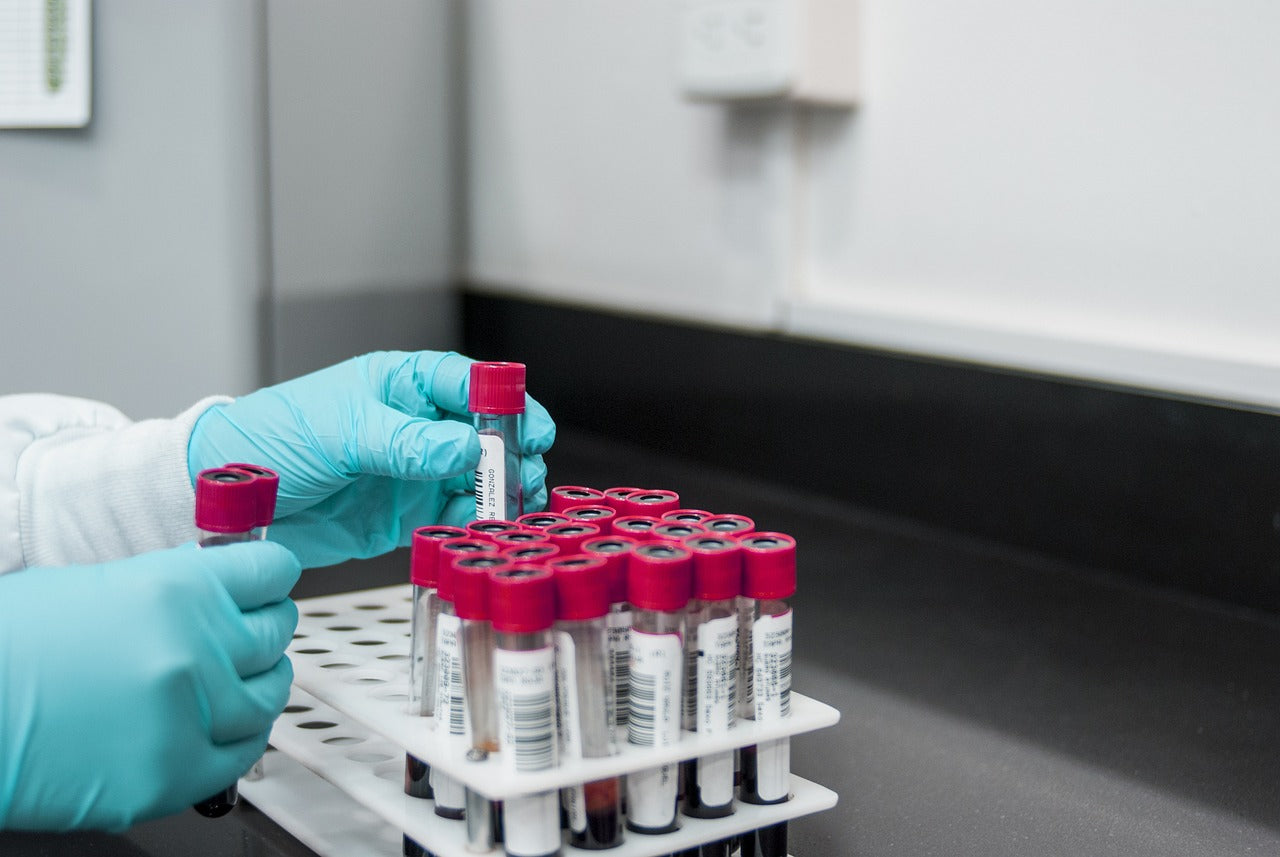Liver enzyme tests are a standard part of routine blood work, but many people don’t really understand what they measure. You might see your results marked as "normal," or maybe you've been told that your liver enzymes are "elevated." But what does that actually mean? Let’s break it down in simple terms.
What Are Liver Enzymes?
Your liver is an under appreciated organ that helps with digestion, detoxification, and metabolism. Liver enzyme tests detect the activity of certain proteins in your blood that come from damaged liver cells. A small amount of these enzymes is normal from regular turnover of liver cells. But these enzymes don't belong in your blood at high levels. So, when these enzymes are elevated, it can indicate liver stress or damage. The four most common liver enzymes tested are:
- ALT (Alanine Aminotransferase)
- AST (Aspartate Aminotransferase)
- ALP (Alkaline Phosphatase)
- GGT (Gamma-Glutamyl Transferase)
Each of these enzymes tells a slightly different story about your liver health.
1. ALT (Alanine Aminotransferase)
What it does: ALT is an enzyme which is mainly found in the liver. Its role is to help break down proteins. Whenever liver cells are damaged, ALT spills out into the bloodstream.
What high ALT means:
- Non-alcoholic fatty liver disease (NAFLD)
- Viral hepatitis (Hepatitis A, B, or C)
- Alcohol-related liver damage
- Medication side effects (like statins or pain relievers)
- Toxin exposure
If your ALT is elevated: This may be a sign that your liver is struggling. If it’s slightly high, making healthy lifestyle choices—like improving your diet and avoiding alcohol—can help. If it’s significantly elevated, your doctor may suggest further testing.
2. AST (Aspartate Aminotransferase)
What it does: AST is not specific to just the liver. AST is also found in the heart, muscles, and kidneys. This means that while high AST can indicate liver issues, it can also be a sign of muscle damage or heart problems or bad kidney function. The AST isn't a test that is as specific as the ALT test.
What high AST means:
- Liver disease (similar to ALT)
- Muscle injury (like after intense exercise)
- Heart damage (such as after a heart attack)
- Alcohol-related liver disease (often with AST > ALT in a 2:1 ratio)
If your AST is elevated: You need a bit more information to interpret an elevated AST because it could be from several different activities. Did you do an intense workout that led to muscle soreness? Are you taking medications that might affect your liver? Are you drinking a lot? If both AST and ALT are elevated, liver issues are more likely the cause. If AST is elevated by itself it might not be your liver.
3. ALP (Alkaline Phosphatase)
What it does: ALP is involved in breaking down proteins and is found in the liver, bones, and bile ducts. So, high levels of ALP could indicate your liver is overworked, but it can mean a problem with bile flow (cholestasis) or bone disorders.
What high ALP means:
- Bile duct blockage (gallstones or liver congestion)
- Liver disease (such as cirrhosis or hepatitis)
- Bone conditions (like osteoporosis or healing fractures)
- Pregnancy (ALP naturally rises in the third trimester)
If your ALP is elevated: If other liver enzymes are normal, the cause might be bone-related rather than a liver issue. If ALP is high along with GGT, it may indicate a bile duct problem.
4. GGT (Gamma-Glutamyl Transferase)
What it does: GGT helps with bile production and detoxification. It’s highly sensitive to liver stress, especially from alcohol and toxins. The GGT enzyme is specific to liver health and has been related to overall longevity and risk of chronic disease in several studies.
What high GGT means:
- Alcohol-related liver damage
- Bile duct problems
- Exposure to toxins or medications
- Fatty liver disease
If your GGT is elevated: If your GGT is high but other liver enzymes are normal, alcohol consumption or toxin exposure may be the culprit. Cutting back on alcohol and supporting liver health with a clean diet may help.
What Should You Do If Your Liver Enzymes Are High?
If your liver enzymes are slightly elevated, you probably already have an idea of what lifestyle factors might be playing a role. The best step is to reflect on your health values and current habits:
- Are you drinking alcohol regularly?
- Do you eat a lot of processed foods or sugar?
- Are you drinking a lot of soda?
- Are you overweight or inactive?
- Are you taking medications that could affect your liver?
Once you’ve identified possible causes, ask yourself: Are my current behavioral choices aligned with my health goals? If not, this is a great opportunity to make changes that bring you closer to optimal health.
Practical Steps to Improve Liver Health
- Reflect on your current behavior. Are you ready to make a change?
- If yes, find a partner to hold you accountable. Tell him or her your goals.
- Pick some measurable steps to take, choosing one or two to work on at a time.
- Follow through on your plan until your new behaviors become a stable habit.
- Pick a new step to take, and work on your plan with your partner.
- Keep your health goals in view, so you remember why you are doing all of this.
When to See a Doctor
If your liver enzymes are significantly elevated or keep rising over time, it’s important to follow up with your doctor. He or she may recommend further tests like an ultrasound, liver function panel, or additional blood markers to assess liver health.
Final Thoughts
Liver enzyme tests are a great way to check in on your liver health, but they don’t tell the full story on their own. You need to look in the mirror as well. If your latest liver enzyme results are elevated, use it as a chance to evaluate your lifestyle choices. When you align your habits with your values, you’re not just lowering liver enzymes—you’re taking control of your overall well-being.







1 comment
Kathy
Thank you for this explanation, not one of the many doctors I have seen over the years ever explained to me why my ALP has been high, and no they have not done any further testing. I do have borderline Osteoporosis which they follow with DEXA scan, however, I know now, thanks to the internet that there are better markers out there to tell us the true nature of our bones. I have never been a heavy exerciser, just doing basic everyday movement. Well guess what, after seeing a Physical Therapist for my bone health I have learned a lot about muscle and bone strength and how weak I really am. My Physical Therapist is now helping me to strengthen all muscles related to aging and staying strong and overcoming any balance issues that might cause a fall, which we all fear as we age. I am 73 years old and look forward to many more years of good health. I have been on a plant based diet for years, but even that needs tweaking sometimes.
Thank you for this explanation, not one of the many doctors I have seen over the years ever explained to me why my ALP has been high, and no they have not done any further testing. I do have borderline Osteoporosis which they follow with DEXA scan, however, I know now, thanks to the internet that there are better markers out there to tell us the true nature of our bones. I have never been a heavy exerciser, just doing basic everyday movement. Well guess what, after seeing a Physical Therapist for my bone health I have learned a lot about muscle and bone strength and how weak I really am. My Physical Therapist is now helping me to strengthen all muscles related to aging and staying strong and overcoming any balance issues that might cause a fall, which we all fear as we age. I am 73 years old and look forward to many more years of good health. I have been on a plant based diet for years, but even that needs tweaking sometimes.